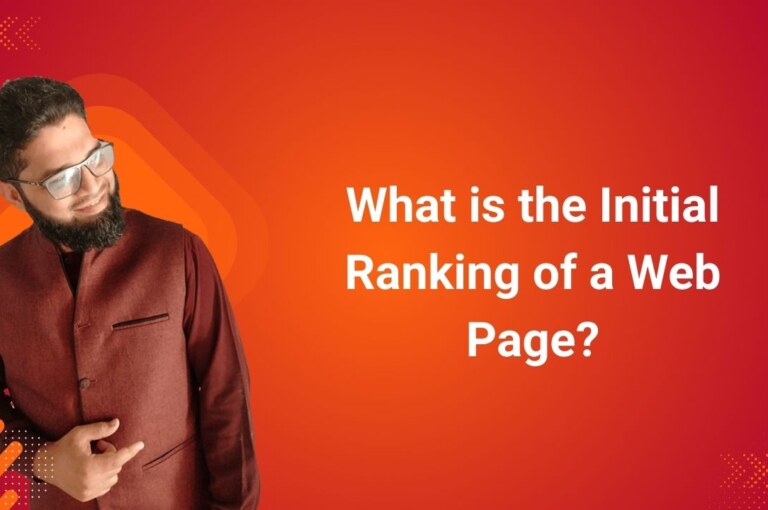What is Initial Ranking of a Web Page?
Initial Ranking refers to the process of assigning a preliminary score or order to items like documents, web pages, or search results based on relevance to a query. Used in information retrieval, search engines, and machine learning, it serves as the first step before further refinement or re-ranking is applied.
The term “Initial Ranking” is commonly used in the context of information retrieval, search engines, and machine learning. It refers to the process of assigning an initial score or order to a set of items (e.g., documents, web pages, or search results) based on their relevance to a query or some criteria, before further refinement or re-ranking is applied.
How Initial Rankings Work?
When a new webpage is published, Googlebot crawls the page and adds it to the search index.
The page is then provisionally ranked based on initial data.
Google’s “Honeymoon Period”:
- Some pages temporarily rank higher shortly after publishing due to freshness signals.
- Google may test the page’s engagement by giving it early visibility.
If users interact well (low bounce rate, high time-on-page), the ranking may remain stable or improve.
Factors Affecting Initial Ranking:
- How well the content matches user search intent.
- Proper use of meta tags, headings, internal links.
- If the website is well-established, new pages may rank faster.
- Well-researched, original content may receive higher initial rankings.
- If the page gets early backlinks or social shares, search engines may boost its ranking.
Ranking Adjustments Over Time:
Google continuously evaluates engagement metrics, backlink quality, and content updates.
After the initial ranking phase, pages may move up or down based on long-term ranking factors.
Why Initial Rankings Matter?
Search engines analyze user engagement to determine final placement. Observing how a page ranks initially can guide optimization efforts.
Helps time-sensitive content (e.g., news articles) appear in search results quickly.
How to Improve Initial Rankings?
- Use target keywords, proper headings, and metadata.
- Ensure content is valuable, unique, and user-friendly.
- Link to the new page from authoritative existing pages.
- Google may consider social signals as an early ranking factor.
If possible, acquire early backlinks from reputable sources.
Wrap Up
The Initial Ranking of a Web Page is a temporary ranking position assigned when a page is first indexed. It is influenced by content quality, on-page SEO, domain authority, and initial engagement metrics. While some pages experience early ranking boosts, long-term rankings depend on sustained user engagement, backlinks, and content updates.
Want to Go Deeper into SEO?
Explore more from my SEO knowledge base:
▪️ SEO & Content Marketing Hub — Learn how content builds authority and visibility
▪️ Search Engine Semantics Hub — A resource on entities, meaning, and search intent
▪️ Join My SEO Academy — Step-by-step guidance for beginners to advanced learners
Whether you’re learning, growing, or scaling, you’ll find everything you need to build real SEO skills.
Feeling stuck with your SEO strategy?
If you’re unclear on next steps, I’m offering a free one-on-one audit session to help and let’s get you moving forward.
Table of Contents
Toggle




Leave a comment